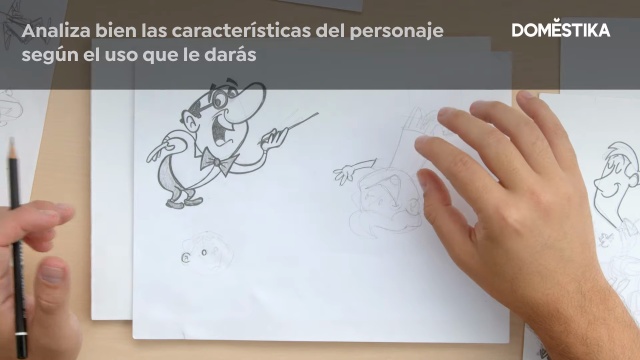Cartoon Tutorial: How To Draw Characters with Personality

Ed Vill shows us how to draw characters from scratch, starting with their personality
Pencil, paper, tablet, computer: when contemplating drawing a character, you’re sure to think about the different physical tools you’d use. What about their personality? For Venezuelan illustrator and designer Ed Vill (@edvill), who is based in Mexico City, you should start by focusing on the essential characteristics of your creation, such as their distinctive facial features, how they behave, and how they react in certain situations. Only after deciding these traits will you be able to put pen to paper (or stylus to screen) and start sketching ideas.
In this tutorial, Ed Vill shows us how to develop a “psychological” profile for a character and give them a personality that brings them to life. Discover more in the video below:
Four steps for drawing a character, starting with their personality
1. Draw a ‘map’ of characteristics and poses

It’s important to work out who your character is: Are they intelligent? Witty? Young? Old? Tall? Plump? There are many different factors to take into account that will determine their gestures, how they dress, and even how they move. Write these characteristics down on a piece of paper. Then, using geometric shapes, try out different poses: running, open-armed, hand on hip, pointing at something, etc. “Never lose the sense of play. We are drawing and making something serious but we’re also having fun,” our teacher reminds us.
2. Try adding objects that define them

If you want your character to be, for example, an illustrator, create objects that might inhabit their universe: a whiteboard or a flipboard, a desk, pencils, a paintbrush, a chair. Although you’ll change these objects around, they’ll always be something that you like and will keep, and which will help you define your character's environment. The secret is to never limit yourself, let your imagination flow. The more sketches you create and the more you experiment, the better your drawings will turn out.
3. Situate your character in a time period

Decide the period in which your character lives: the 50s? The Middle Ages? The present day? This will help you to understand how to draw their hair, what clothes they might wear, and whether you want to add a beard or other details. Analyze your poses, facial expressions, and other fundamental characteristics to understand if what you’re seeing on paper–or on your screen–reflects the personality you are aiming for.
4. Complete your sketch to complete your idea

During the process of exploring different options for a character, it’s normal to want to keep erasing and redrawing strokes and details. However, you should avoid this. Ed Vill recommends finishing a sketch before analyzing what about it works and what doesn’t. There is always something that you can use and that will serve as inspiration. “No line is final. This is the best advice I can give you,” adds the illustrator.
Have you enjoyed this tutorial? Remember that you can learn to create characters for brands with Ed Vill, from sketch to digital illustration, in his course, Cartoon-Style Character Design with Procreate.
You may also like
–Introduction to the Creation of Cartoon Style Characters, a course by Ed Vill
–Creation of Manga Characters, a course by Andrea Jen
–Female Character Design for Comics, a course by Márcio Takara






0 comments